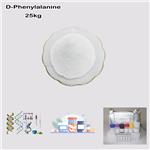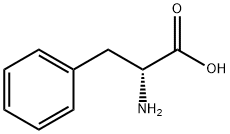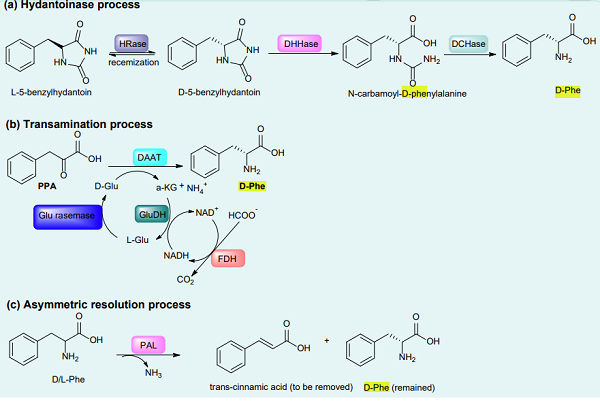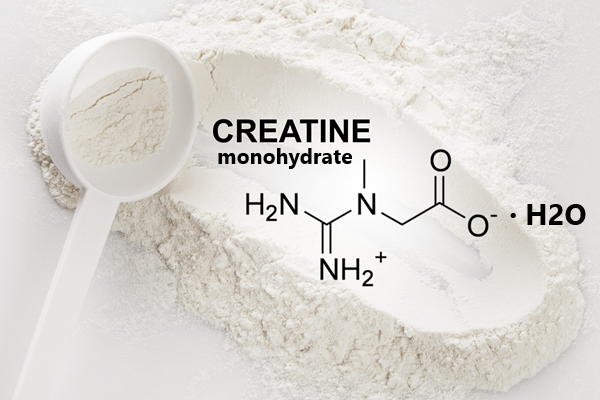An optimized method for the synthesis of D-phenylalanine
Background of the synthesis of D-phenylalanine
D-phenylalanine is the non-natural amino acid, which is widely used in the fields of medical, pesticides, food, light industry and so on. Nowadays there have been no ferment methods for producing D-phenylanlanine. The widely used method is racemic resolution, which needs huge amount of resolving agent, is low yield, high cost and may cause serious environmental problems.Transition metal-catalyzed asymmetric hydrogenation is one of the effective ways to construct chiral compounds, having such advantages as high selectivity, high conversion, atom economy and easy operation, which therefore proves high potentials in industrial application. In Chen's paper[1], the new process of asymmetric synthesis of D-phenylalaine by asymmetric catalytic hydrogenation of (Z)-methyl-2-acetamidocinnamate with chiral unidentate phosphorus ligands and rhodium as catalysts, had been investigated.
The synthesis process of D-phenylalanine
D-Phenylalanine is the raw material of the famous anti-diabetic drug Nateglinide and the anti-tumor drug Baishixin. In recent years, the demand for busulfan and nateglinide in the drug market has been increasing, which has greatly promoted the synthesis of D-phenylalanine and its derivatives. At present, the synthesis methods of D-phenylalanine mainly include biological method, resolution method and asymmetric chemical synthesis method. The transition metal-catalyzed asymmetric hydrogenation method has the characteristics of atomic economy, enantioselectivity and environmental friendliness. Therefore, this method has become a research hotspot in the industrial production of D-phenylalanine.
D-phenylalanine can be obtained by hydrolysis of ester derivatives 56a-56e of D-(R)-phenylalanine. Considering the easy removal of the protective group, the researchers chose the ester derivatives 56a-56e of D-(R)-phenylalanine as the precursors for the synthesis of D-phenylalanine, and these precursors can be obtained by asymmetric catalytic hydrogenation of α-dehydroamino acid ester compounds 57a-57e. The optimal synthesis process of precursor compounds 57a-57e was screened by A-F six synthetic routes (Scheme1). The optimized synthesis methods are summarized as follows.

First, the intermediate (Z)-methyl-2-acetamidocinnamate, the starting material of asymmetric catalytic hydrogenation, was synthesized by a two-steps route that used benzaldehyde and N-acetylglycine as starting materials, and then the reaction conditions had been optimizated.
They synthesized 2-methyl-4- (phenylmethylene) oxazol-5(4H)-one by Erlenmyer condensation reaction. Then they chose triethylamine as catalyst and the reaction solution is stirred under mild condition to synthesize the substrate (Z)-methyl-2-acetamidocinnamate. This laboratory preparation can be expanded to the scale of kilograms.They also expanded the scale of this reaction to synthesis 22 α-dehydroamino acid derivatives, such as (Z)-methyl-2-acetylamino-3-(4-bromophenyl) acrylate,(Z)-methyl-2-benzoylamino-3-(4-bromophenyl)acrylate,(Z)-methyl-2-acetylamino-3-(3-bromophenyl)acrylate,(Z)-methyl-2-benzoylamino-3-(3-bromophenyl)acrylate,(Z)-methyl-2-acetylamino-3-(4-nitrophenyl)acrylate,(Z)-methyl-2-benzoylamino-3-(4-nitrophenyl)acrylate and so on.
They used (S)-Binaphthol (BINOL) as materials to synthesize (S)-MonoPhos and other 4 kinds of phosphorus ligands. And they used (Z)-methyl-2-acetamidocinnamate as substrate and focused study on the catalyst performances of the chiral phosphorus ligands-[Rh(COD)2]BF4 complexes. It showed that (S)- MonoPhos is the best ligand, which gains quantitative conversion and high enantioselectivity as 95.5% in the asymmetric hydrogenation of (Z)-methyl-2- acetamidocinnamate. When the material ratio of substare and catalyst is 3000 (S/C=3000), the reaction is still quantitative and the ee value remains. If the N atom of the phosphorus ligand is linked with one H atom, the ee value is obviously low, which is less than 90%. Using (S)-MonoPhos as the potimal phosphorus ligands, we find the ee value between 86% and 100% in the reaction of asymmetric hydrogenation of other 21 α-dehydroamino acid derivatives. Especially Chen and colleagues found that high quantitative conversion and high ee value as 100% in the asymmetric hydrogenation of (Z)-methyl-2-benzoylamino-3-(4-nitrophenyl) acrylate.
It was the first time to realize the synthesis of D-phenylalanine in the scale of kilograms. In the amplification experiment, they used three different high pressure vessels (125 mL, 300 mL and 5000 mL) and the results showed the same with the results obtained in Lab. Hydrogenated products was hydrolyzed by hydrochloric acid, and then D-phenylalanine was obtained with total yield of 92% and optical purity of 99%. The specific and complete synthesis method is shown in Reference 1(Figure 1).

Conclusion
As a pharmaceutical intermediate, D-phenylalanine is used in the synthesis of drugs used in the prevention and treatment of various diseases, including osteoporosis, cardiovascular conditions, diabetes mellitus, and atherosclerosis [2]. For instance, D-phenylalanine is used in the synthesis of nateglinide, which is an important therapeutic drug for treating type II diabetes mellitus [3-4]. Beyond pharmaceutical applications, D-phenylalanine is used in cosmetics and other beauty products, as a food additive, and in the chemical synthesis of a wide array of compounds. This synthesis method may help to alleviate the large-scale demand for this raw material.
References
1.Haitao C. Study on New Process of Asymmetric Synthesis of D-Phenylalanine.[D].Zhengzhou University,2016;1-93.
2.Luo S, Liu Y, Wang X, et al. Development of a certified reference material for D-phenylalanine with evaluation of enantiomeric purity. Anal Bioanal Chem. 2024;416(23):5177-5189.
3.Tentolouris N, Voulgari C, Katsilambros N. A review of nateglinide in the management of patients with type 2 diabetes. Vasc Health Risk Manag. 2007;3(6):797-807.
4.Pollegioni L, Rosini E, Molla G. Advances in enzymatic synthesis of D-amino acids. Int J Mol Sci. 2020;21(9):3206.
You may like
Related articles And Qustion
See also
Lastest Price from D-Phenylalanine manufacturers

US $0.00-0.00/kg2025-10-21
- CAS:
- 673-06-3
- Min. Order:
- 1kg
- Purity:
- 98%-101%
- Supply Ability:
- 500kgs

US $0.00/mg2025-06-06
- CAS:
- 673-06-3
- Min. Order:
- 1mg
- Purity:
- 98-99%
- Supply Ability:
- 20tons



